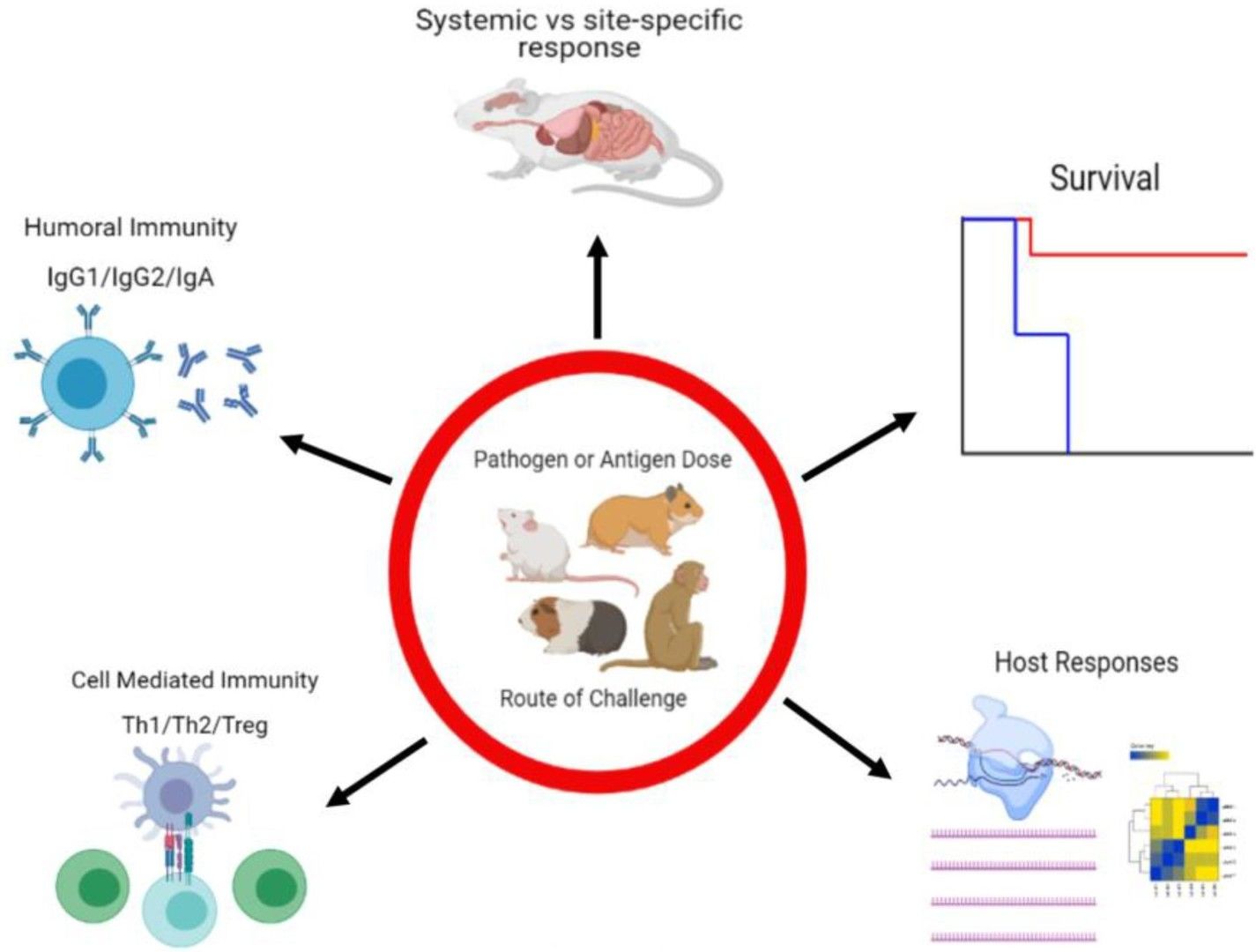Models of pathogen infections play a significant role in the study of disease development, understanding of host-pathogen relationships and creation of new treatment models. Our company devotes great efforts to the development of pathogen infection models. We utilize advanced technologies and rigorous process to engineer models that are of high relevance and validity that accurately mimic the intricacies of infectious diseases.
Overview of Pathogen Infection Models
Pathogen infectious models act as animal models designed to study the dynamics of human infectious diseases. In these models, the pathogens are deliberately inserted into animals hence providing a simulated environment for the study of the disease. The following are examples of the uses of pathogen infection models.
- Infectious disease mechanism research
- Disease progression research
- Drug target discovery and identification
- Pathogen-host interaction research
- Immune response research
- Safety and efficacy evaluation of potential therapies
 Fig. 1 Hemorrhagic fever virus infection models and important immunological considerations. (Warner B M., 2021)
Fig. 1 Hemorrhagic fever virus infection models and important immunological considerations. (Warner B M., 2021)
Pathogen Infection Models for Infectious Diseases
Models of pathogen infection are important tools in the research and understanding of the pathogenesis, prevention, and treatment of infectious diseases. A few specific types of pathogen infection models for infectious diseases are provided below.
| Diseases |
Pathogen |
Species |
Infection Method |
Applications |
| Salmonellosis |
Salmonella |
Mice |
Oral inoculation |
Study gastrointestinal colonization, systemic dissemination, immune responses, and the efficacy of antibiotics or vaccines against Salmonella |
| Lyme Disease |
Borrelia burgdorferi |
Mice |
Tick-bite inoculation |
Study disease progression, host immune responses, tissue tropism, and the evaluation of therapeutic interventions |
| Pneumococcal Pneumonia |
Streptococcus pneumoniae |
Rats |
Intranasal instillation |
Study the development of pneumonia, host immune responses, bacterial dissemination, and the efficacy of antimicrobial treatments or vaccines |
| Dengue Fever |
Dengue virus |
Rhesus macaques |
Intravenous injection of virus |
Study viral replication, immune responses, disease progression, and the evaluation of antiviral drugs or vaccine candidates |
Our Services
We are among the leaders in crafting an animal model, by employing sophisticated equipment and a thorough development process in constructing pathogen infection models which are strong and predictive. The models are vital in the research of infectious diseases, making it possible to investigate its mechanisms, test possible cures, and devise measures for preventing its occurrence.
Animal Species Selection
The types of species which are most appropriate for the construction of a pathogen infection model of a particular infectious disease are chosen based on the analysis of human genetic similarity, virus susceptibility, physiological systems, availability, costs, and ethics of the specific disease model techniques.
Acquisition of Pathogen
Our scientists will procure clinical isolates, reference strains, or other genetically modified variants of the infectious organisms and confirm the strains & virulence and ability to multiply in the selected animal species.
Infection Method Development
Our experts devise and refine the manner of infection to mimic natural routes of transmission and the subsequent disease evolution. These methods are not limited to aerosol inhalation, oral inoculation, intravenous injection, intranasal instillation, and tick-bite inoculation.
Model Validation and Comparison
We assess the immune system's reaction, the iterative dynamics of infection and the relevant factors of a given laboratory animal model. The infection model is justified by comparing the reactions and attained parameters with selected components of the disease of concern in humans.
Model Optimization
Validation will help us identify the limitations and shortcomings of the model in a timely manner. Depending on the specific research goals, we will update or modify the model as needed.
Optional Species
- Rodents: mice, rats, guinea pigs, rabbits, etc.
- Large Animals: pigs, dogs, sheep, cows, ferrets, etc.
- Fish and Insects: zebrafish, medaka, fruit flies, etc.
- Non-human Primates: rhesus macaques, cynomolgus macaques, African green monkeys, etc.
Our company specializes in pathogen infection modeling for different diseases which include bacterial and viral and parasitic and fungal infections and even prion diseases. These models also serve as an enabling tool in preclinical research of therapeutics of infectious diseases which includes pharmacodynamics and PK and drug safety evaluations.
For any additional service or price quotations, please do not hesitate to contact us.
References
- Warner B M. Pathogen dose in animal models of Hemorrhagic fever virus infections and the potential impact on studies of the immune response[J]. Pathogens, 2021, 10(3): 275.
- Swearengen J R. Choosing the right animal model for infectious disease research[J]. Animal models and experimental medicine, 2018, 1(2): 100-108.
All of our services and products are intended for preclinical research use
only and cannot be used to diagnose, treat or manage patients.


 Fig. 1 Hemorrhagic fever virus infection models and important immunological considerations. (Warner B M., 2021)
Fig. 1 Hemorrhagic fever virus infection models and important immunological considerations. (Warner B M., 2021)
